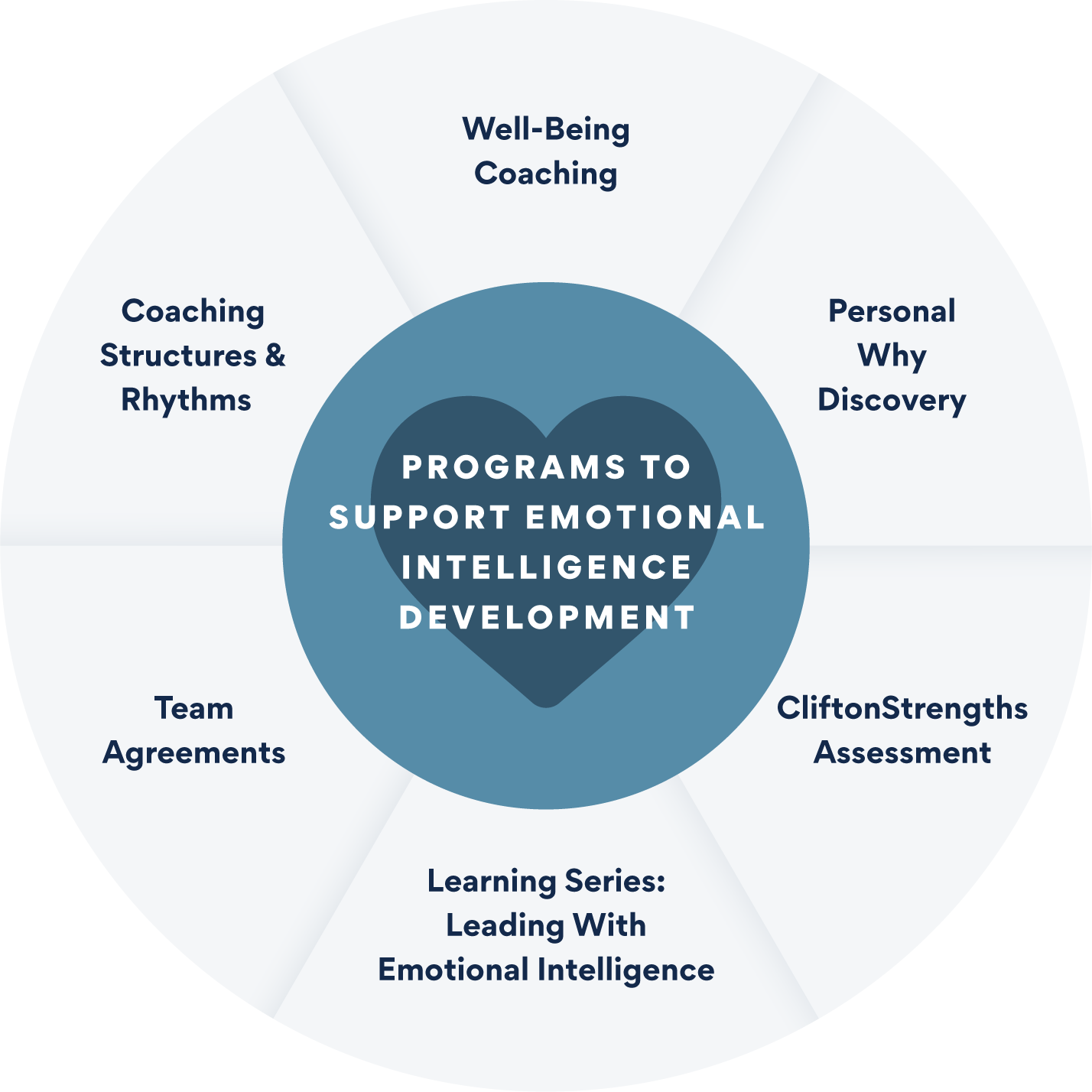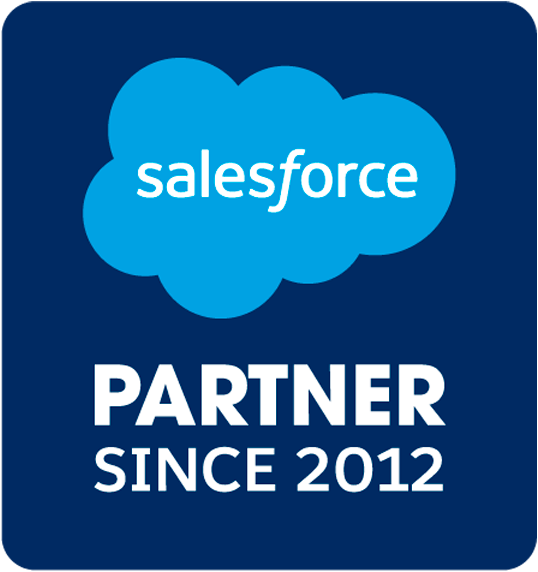How does emotional intelligence play a role in Torrent’s vision & overall growth strategy?
From day one, Torrent Consulting has set out to create a business fueled by purpose. In fact, our core belief is that through business, we can love and serve people to make an impact in the world. The delicate balance of putting people first while building and sustaining a thriving business is highly dependent on emotionally intelligent leadership. We perceive leadership through an abundant lens, viewing all our employees as leaders. All elements of our business — whether it’s leading a client call, developing solutions that meet needs, closing sales deals, contributing to our Torrent culture or managing our finances effectively — are deeply influenced by our shared responsibility of emotionally intelligent leadership.What specific initiative or program has Torrent implemented to support our people's emotional intelligence development?
We have several initiatives that have directly or indirectly supported the development of EI in our employees, whom we call Torrent Guides. We are committed to growth and development, and our Torrent Guides are encouraged to set at least one goal per quarter in the areas of career, well-being, leadership or social impact. We provide resources that can be engaged individually, such as well-being coaching or personal why discovery, or collectively. We have offered a “Leading with Emotional Intelligence” learning series several times over the last few years as well. Since our inception, we have had our team members take the CliftonStrengths assessment. We regularly use this tool to deepen our self-awareness and also better understand how we can collaborate more effectively by maximizing our strengths. We reference it regularly and also use it in our team agreements, which is a document that our delivery teams use to guide meaningful discussions around how to best work together as they’re beginning new projects. We also have a robust peer coaching structure in place — all Torrent Guides have a coach who is invested in their personal and professional well-being. We have weekly coaching sessions that provide three things that I think really help deepen the development of EI: a dedicated coach who’s invested in their coachee’s success, the space to reflect and process what is on the coachee’s mind, and EI-related topics that the coach and coachee can engage as they see fit.
How has Torrent measured the impact of emotional intelligence development on individual and team performance?
This is a great question, one I would say we haven’t figured out in terms of measurement. But we do know from personal accounts that Torrent Guides have experienced the difference that is made when they have emotionally intelligent managers, coaches and teammates. They feel more supported and trusted to do great work. In our performance evaluations, we don’t just focus on technical skills. We assess EI-related competencies, including communication, collaboration, listening carefully to the client’s goals and pain points, getting curious, and asking questions that help drive solutions with organizational awareness in mind. We also see the impact in high-functioning teams and healthy relationships. For a largely remote company, it could be challenging to build relationships — but our internal teams and our clients regularly provide feedback that our teams are truly collaborative and invested in collective success.Can you share any success stories or testimonials from employees who have benefited from the focus on emotional intelligence at Torrent?
I’d love to gather our people around a campfire and just hear the stories that would spill out with this conversation starter. We’ve all been beneficiaries of the focus on EI. I think our employees would tell these stories best, but I’ll try to answer this with a couple of meaningful examples. One example is of a teammate who, after going through our Leading with Emotional Intelligence learning series, noticed that when a teammate asked him to repeat information a few times, it frustrated him. Rather than just shutting his teammate down or responding unproductively, he paused, took a deep breath, wrote me a Gchat to share what he noticed about himself, and then determined how he wanted to respond. He later told me one of his biggest takeaways from developing in EI is that “I’m not what I feel. I can stand apart from my emotions, examine them and then make a choice that aligns with my values and who I want to be, not just how I’m feeling in the moment.” Another example is of a teammate who was fairly new to the company and she had felt burned out at her previous job. She was going through some hardships while still new to her role, and her manager anticipated her needs and took her off a project to give her some space. She felt bad that she wasn’t able to accomplish her work, but her manager assured her that she could take the time to rest and heal and the work could wait a little bit. In many company cultures, this kind of move could send an employee into a tailspin, wondering if their job was on the line. But in an emotionally intelligent culture, it can be viewed for what it is — an act of compassion and care for the whole person, making it possible for trust to be built and a person’s sense of worth to be validated. Our coaching relationships are another success story. Everyone in the company has a coach, and all coaches receive regular development steeped in emotional intelligence. When I talk with our employees about the biggest contributors to their well-being, they regularly cite their relationship with their Coach. This weekly connection and relationship creates a trusted space where our employees are known at a deeper level, have space to reflect and create a plan for meaningful personal and professional progress. We could share a lot of testimonials from hardships as well. We’ve made mistakes, and we’ve forgiven each other. We’ve assumed positive intent to help us stay in the hard conversations versus throwing in the towel and giving up on each other. Trust has been broken at times, and we’ve seen teammates work hard to rebuild it. Embracing the importance of leading ourselves with emotional intelligence has truly helped us create a healthy culture.
We could share a lot of testimonials from hardships as well. We’ve made mistakes, and we’ve forgiven each other. We’ve assumed positive intent to help us stay in the hard conversations versus throwing in the towel and giving up on each other. Trust has been broken at times, and we’ve seen teammates work hard to rebuild it. Embracing the importance of leading ourselves with emotional intelligence has truly helped us create a healthy culture.
How do you empower employees to apply emotional intelligence skills in their day-to-day interactions with clients, colleagues, and partners?
We encourage our employees to think of themselves as leaders and consistently look for opportunities to lead by assessing their own skills and talents and then committing to using those skills and talents to develop the potential in people and processes. This might look like using their humor to build connections and rapport with clients. It might look like seeing colleagues who need skill development in a particular area and then offering to help upskill them. It might look like listening to the concerns of a prospective client, considering where they’re coming from, and helping identify a solution in the sales process that can meet both their needs and our team’s abilities. Our employees are also empowered by seeing emotionally intelligent leadership modeled by our managers. Our managers are consistently reviewing workloads, the well-being of our teams and making adjustments as needed for staffing. They care for the whole person, and our employees are empowered by their example.





